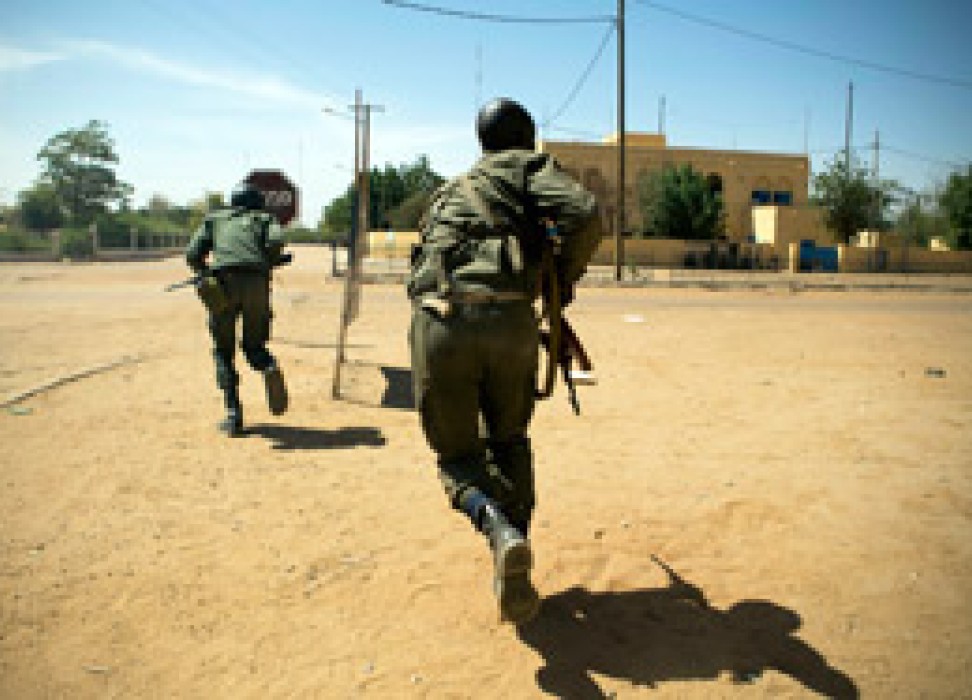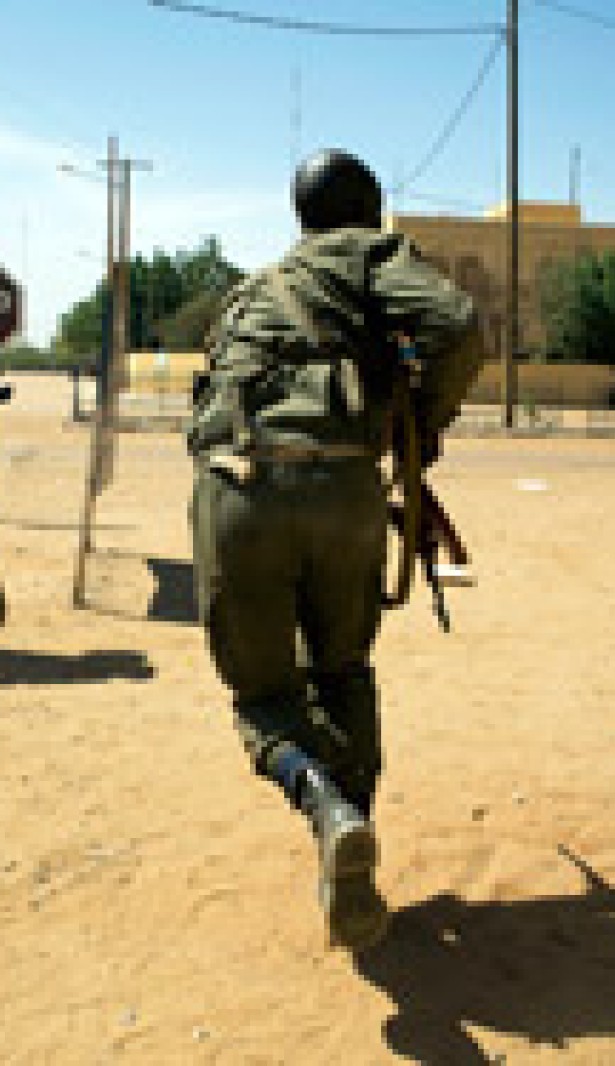Fear of reprisals in the aftermath of Mali occupation
25 March 2013

A report by the UN Human Rights Office on the crisis in Mali has revealed serious human rights violations since the beginning of the conflict in January 2012.
The report has shown that the current human rights situation was linked to long-standing and unresolved issues, and that human rights violations have been committed both in the North, and in the area under government control.
Three main regions of Northern Mali – Gao, Kidal and Timbuktu - had been controlled by four rebel groups before the French and African military intervention: the separatist National Movement for the Liberation of Azawad (MNLA); and the extremist movements Al-Qaida in the Islamic Maghreb (AQIM), Ansar Dine and the Movement for Unity and Jihad in West Africa (MUJAO).
The extremist groups imposed a strict application of sharia law on the population that resulted in serious human rights violations including summary executions, rape, torture, the recruitment of child soldiers, violations of freedom of expression and of right to information and violations of the right to education and health.
These findings were presented to the Human Rights Council in Geneva by the UN Deputy High Commissioner for Human Rights, Kyung-wha Kang, following two UN missions deployed to Mali, Burkina Faso, Mauritania and Niger from 11-22 November 2012 and from 18 February 2013 onwards.
On 24 January 2012, MNLA combatants allegedly used students as human shields to force Malian military forces to surrender and later on executed the soldiers they captured.
Civilian deaths were also reported, including a young unmarried couple who were stoned to death in Aguelhok on 29 July 2012 by members of Ansar Dine and the MUJAO. Ten amputation cases by extremists groups in the North were also documented.
Rapes of women and girls were repeatedly used in the North to intimidate people and break any form of resistance. Young girls, sometimes as young as 12 or 13, were forcibly married to members of Ansar Dine, MUJAO and AQMI and gang-raped for days, the report says.
The Human Rights Office also highlighted cases of arbitrary detention in Gao, Timbuktu and Kidal, as well as cases of sexual violence against female detainees. The Office also documented the recruitment of child soldiers, sometimes as young as 10, by extremist groups to participate in combats in Gao and Timbuktu.
“The food security situation in Mali, which was already dire due to drought, has worsened due to the conflict. Access to education in northern Mali has been undermined by the presence of armed groups, in particular because of the destruction and looting of schools and the departure of 85 per cent of teachers,” noted Kang. “The mass exodus of medical personnel and the destruction of health facilities led to a shortage of basic health services.”
The human rights team also highlighted human rights violations in parts of the country controlled by the Government, including the alleged extra-judicial killings of several soldiers of the Malian army and at least 21 cases of enforced disappearances in Kati camp, following a failed reverse coup on 30 April 2012. Members of the police and the military suspected of supporting the coup were arrested and tortured in Kati camp.
Malian soldiers also allegedly executed 16 pilgrims on 9 September 2012 in Diabali.
The OHCHR mission highlighted the increasing presence of self-defence militia and expressed its alarm at the growing ethnic tensions in Mali, which could also lead to possible acts of revenge against communities perceived as being linked to the armed groups.
“Unfortunately, this appears to have materialized since January 2013 […] The preliminary findings of the [February] mission suggest that the recent military intervention in the North of Mali was followed by a serious escalation of retaliatory violence by Government soldiers who appeared to be targeting members of the Peuhl, Tuareg, and Arab ethnic groups who are perceived to be supportive of the armed groups,” she said.
She acknowledged the public commitments made by the Government of Mali to fulfill its human rights obligation to fight impunity and investigate perpetrators and provide redress for the victims. Kang noted that these commitments had, however, not be concretized.
“The civilian population should be protected and the suspected rebels who have been arrested should be treated humanely and their due process rights respected. Allegations of involvement of the elements of the Malian army in acts of reprisals against civilians should be investigated and those responsible should be brought to justice,” the Deputy High Commissioner called on authorities.
The UN Refugee Agency (UNHCR) estimates that there are currently 203,840 internally displaced persons (IDPs) in Mali. Between 1 December 2012 and 4 March 2013, the number of IDPs increased by 5,282; and the number of Malian refugees in neighboring Burkina Faso, Mauritania, and Niger has increased by 44,813. Most of the refugees are from ethnic groups that fear reprisals by the population or the Malian Forces upon the recovery of control over previously rebel-controlled areas.
25 March 2013

VIEW THIS PAGE IN:
